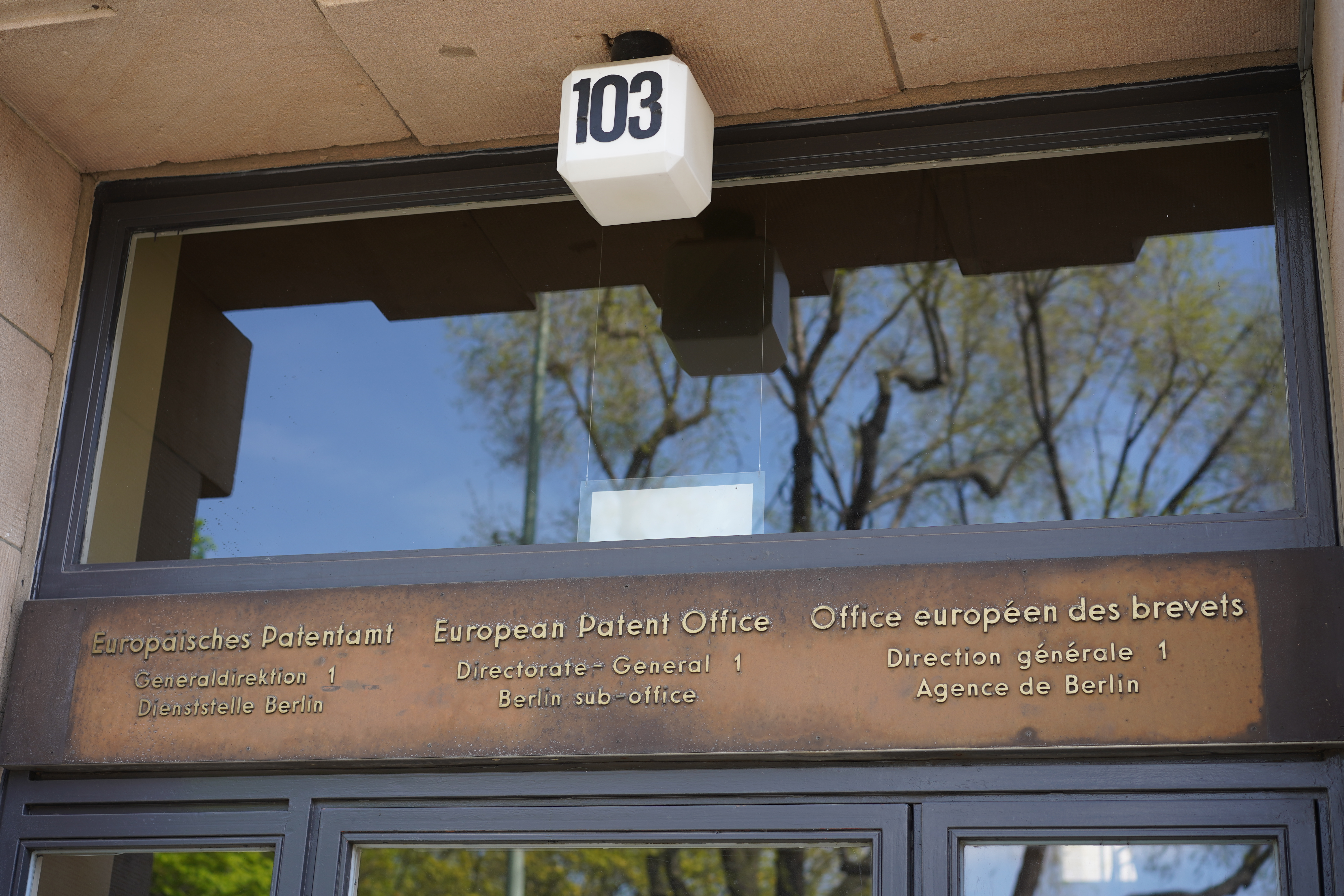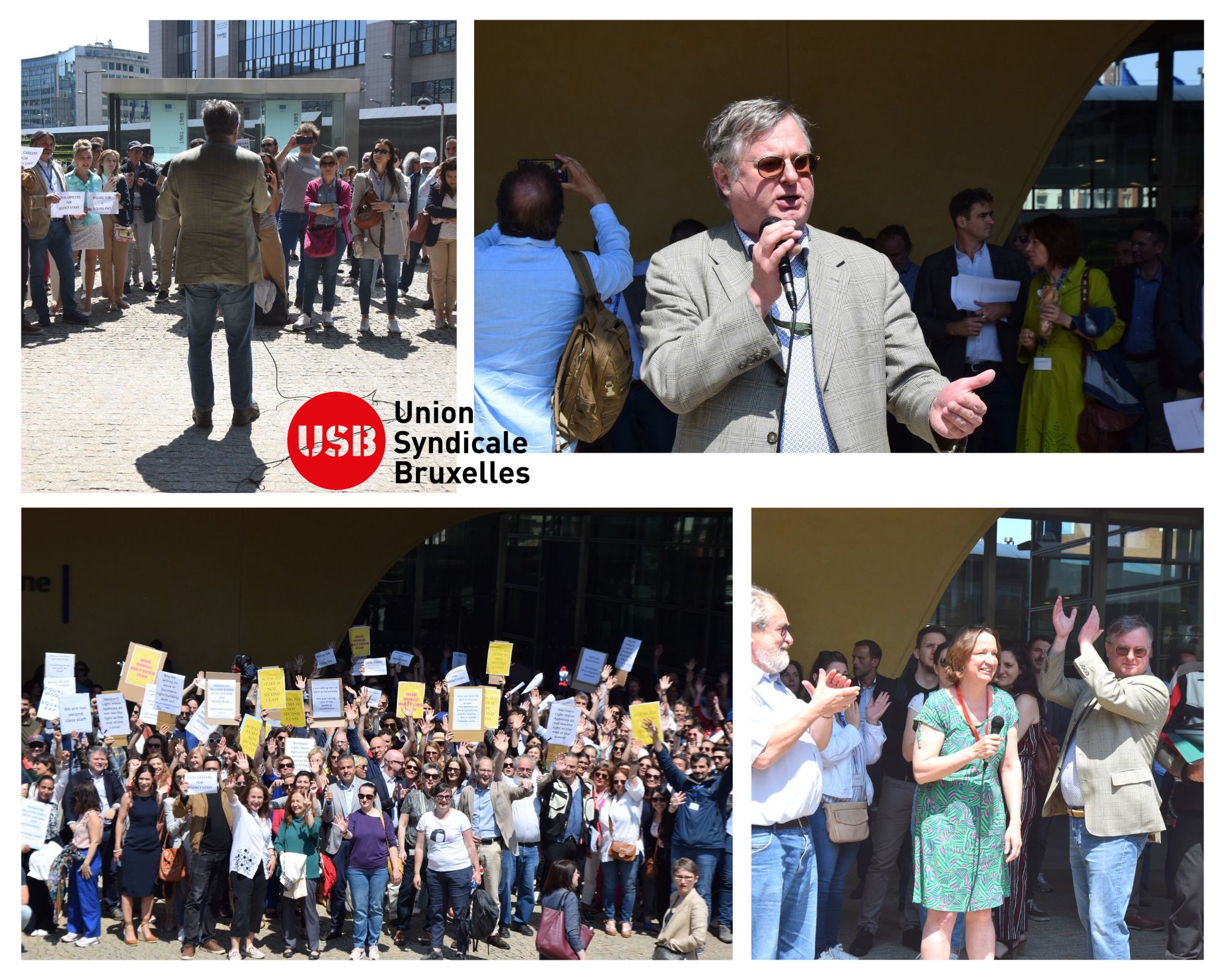
The open crisis at the European Patent Office (EPO)
In the discreet and policed world of international organizations, demonstration is an extremely rare practice. Those scheduled for Tuesday 11 October in Munich and Thursday 13 October in The Hague by examiners from the European Patent Office (EPO) are, however, the umpteenth in a long series that will begin in 2013. This is the only way employees have found to alert the 38 states meeting in the Administrative Council on 12 and 13 October to a social situation that has been worsening for more than three years.
There will be no question of money. There is no mention of remuneration at the "Office". At more than 5,000 euros the hiring salary, plus expatriation bonus, paid children's schools and a few other benefits, the employees know they are well off. In order to attract scientists from all countries, the Office has indeed had to align itself with the best paid civil servants in Europe. But money is not everything.
The EPO is one of those international organisations, like a small handful of others around the world, with a legal status of its own. With its headquarters in Munich and branches in Berlin, The Hague and Vienna, it employs 7,000 people to examine inventors' applications and to issue in three languages the valuable patents it has held a monopoly on for forty years.
In July 2010, Frenchman Benoît Battistelli took over the reins. It was shortly after the arrival of this former director general of the National Institute of Industrial Property (INPI) that working conditions deteriorated, says Suepo, the in-house union. The man, who has a particular conception of the right to strike, who imposed productivity criteria and set up an "investigation unit" to investigate employees, has become their pet peeve. It is clearly reciprocal.
The Office enjoys a form of legal immunity
It had to go a long way for this community of engineers - former top of the class who came knocking on the EPO's door, not to make a career, but because they appreciated the ten-nation table and the quietness of the job - to denounce the hell of their golden prison.
In the last five years, four of them have killed themselves. One Belgian father threw himself out of his office window in The Hague. Another committed suicide on the last day of his holiday. After each of the tragedies, the union demanded an independent investigation. Management refused to listen, claiming that these acts had nothing to do with work. For the unions, it was the last straw.
The problem is that, like any international organisation (OECD, European Space Agency, etc.), the EPO enjoys a form of legal immunity: no national law can be imposed on it. Only the internal regulations are authoritative. "This is the problem with all these organisations. If all goes well, all is well. But at the slightest grain of sand, nothing can be done," laments Philip Cordery, one of France's representatives abroad, who has alerted successive governments and industry ministers to the atmosphere at the EPO.
"Three years ago, something broke."
There was a time when it was good to work at the Board. Conditions were so pleasant that his retirement was even postponed. Andreas, a biologist by training, had considered pushing to the age of 63. He had "thrown in the towel" earlier, "like many people lately". With a handful of others, he agreed to confide in Le Monde, on the condition that his anonymity would be preserved and that the meeting would take place far from The Hague. "You understand, if anyone learns that I spoke... Even in retirement, I am bound to a certain discretion." He would not want to suffer the same fate as one of his colleagues, whose pension has been reduced by 30%.
"Three years ago, something broke," he explains. The work was still interesting, but the atmosphere became unbearable." The new president's liberal and tactless methods are not working. Imposing production criteria on a surplus organization with an annual budget of 2 billion, and whose patents are deemed virtually unassailable in court, is nonsense for this engineer.
By tradition, and because an examiner does not become operational until after three years, the old ones supported the new ones. "In the end, I saw colleagues refusing to help the newcomers for fear of wasting time and on the pretext that it was of no benefit to them. Now that we're being evaluated on our goals..."
It was precisely to denounce this number policy that Sylvia agreed to testify.
"Management is not only destroying working conditions, but also the system of the European economy. The patents we issue are not so good. A drop in quality will have consequences for the industry," she deplores. There is money at stake."
Since the Suepo union denounced the climate of fear and tension in which employees work, several of its representatives have been subject to disciplinary proceedings. It seems that this open crisis at the EPO knows no end... France, Germany and the UK have expressed their concern and demanded at the March board meeting that all proceedings be suspended until an independent social audit is carried out. At the end of September, the audit had still not been completed, but the Secretary General of Suepo in The Hague was going before the Disciplinary Committee. Two other employees are concerned.
"This is no coincidence for this open crisis at the EPO"
Staff representatives are shouting union harassment. Management does not see the report: "These procedures follow a complaint of harassment, defamation and threats that led to the resignation of an elected staff representative", she recalls. Me Amélie Lefebvre, of the Bourdon law firm and counsel for Suepo, deplores the fact that "Mr. Battistelli, who does not feel bound either by his board of directors or by national courts, is hiding behind his functional immunity to take such brutal retaliatory measures against those who question his social policy".
"When, over the past two years, the sanctions taken against staff representatives have backfired, we are far from coincidental," said Philip Cordery, a Member of the European Parliament. On 13 October, he will march alongside the employees.
Emeline Cazi
Journalist at Le Monde
To know more, click here.







